|
Japan court rejects germ war compensation
(Agencies)
Updated: 2005-07-19 15:30
Tokyo - A Japanese high court has rejected appeals by 180 Chinese demanding
compensation for damage caused by Japan's World War II germ warfare program.
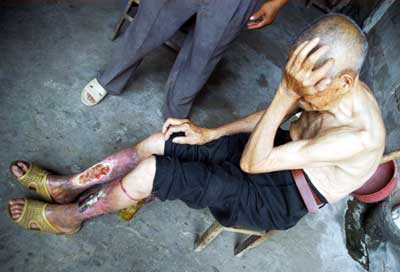
He Fuxin, 86, whose
legs and feet have rotten due to an anthrax infection, cries at his
home in Jinhua, east China's Zhejiang Province July 5, 2005. He is of the
survivors of the germ-warfare launched by Japanese troops during World War
II. Starting from October 1940, Japanese troops launched an extensive
germ-warfare in China, spreading bacterium of plague, cholera, typhoid
fever, anthrax and glanders in Jinhua and Quzhou of Zhejiang, killing more
than 60,000
Chinese. [newsphoto] | Separately, however,
the government announced it would take responsibility for cleaning up decaying
wartime chemical weapons found in southern China last month that injured three
people.
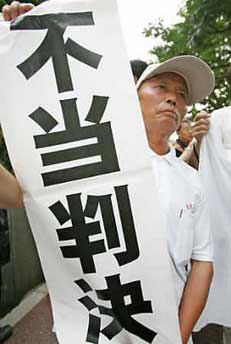
China's 68-year-old Wang Jinhua holds a banner
after a legal judgement in front of the Tokyo High Court in Tokyo July 19,
2005. [Reuters] | Upholding a lower court verdict on Tuesday, the Tokyo High Court acknowledged
damage was caused by Japan's germ warfare in China but ruled that the Japanese
government is not responsible for compensating the Chinese victims, a court
spokesman said on condition of anonymity.
The plaintiffs, all Chinese citizens, filed the case in 1997, demanding an
apology and 10 million yen (US$89,300) each from the Japanese government.
The plaintiffs claim at least 2,100 Chinese died in outbreaks of cholera,
dysentery, anthrax and typhoid that were allegedly mass-produced by the Imperial
Army's notorious Unit 731, based in the northeastern Chinese city of Harbin.
In an August 2002 ruling, Tokyo District Court acknowledged that Japan used
biological weapons before and during World War II.
But the court rejected the Chinese plaintiffs' demands, saying foreign
citizens cannot seek compensation directly from the Japanese government under
international law.
It also said Japan had already paid compensation under postwar peace
treaties.
The case has unearthed details about the country's biological warfare program
that the government and U.S. occupation forces kept secret after the war.
|
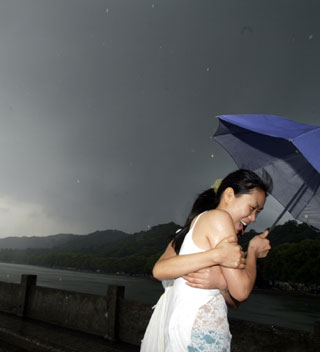 | | | Typhoon Haitang affects Hangzhou | | | 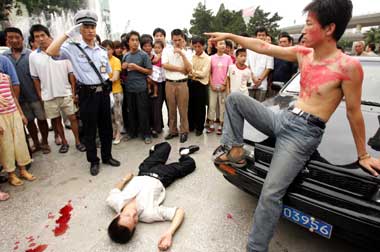 | | | No drive under alcoholic influence | | | 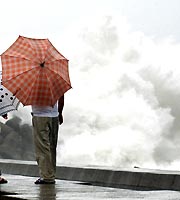 | | | Typhoon Haitang comes | | |
|
 |
|
 |
|
|
Today's
Top News |
|
|
|
Top China
News |
 |
|
 |
|
|
|
|
|
|